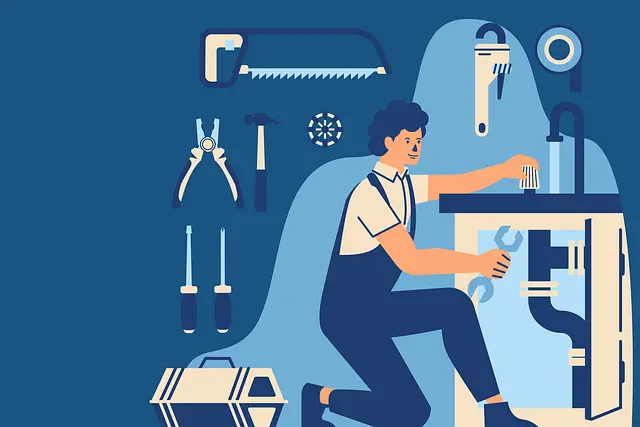Understanding the Core of Plumbing Repair
Plumbing repair is fundamental to maintaining a home's sanitation and functionality. It encompasses a wide range of activities aimed at fixing or maintaining pipe systems, fixtures, and appliances. A deep dive into what plumbing repair involves reveals the intricate processes and expertise required to address persistent issues effectively.
Classifying Plumbing Problems
Before diving into specific repair techniques, it's crucial to understand the common categories of plumbing problems. These include leaks, clogs, pipe corrosion, and fixture failures. By classifying these issues, plumbers can better determine the appropriate repair methods.
Leak Repairs
Leaks are one of the most prevalent plumbing issues, often resulting from worn-out seals, corroded pipes, or excessive water pressure. Addressing leaks involves pinpointing the source of the problem, which might require using specialized equipment such as leak detection tools. Once located, the plumber can either patch the leak or replace the affected section of the pipe.
Clogs and Blockages
Clogs in drains or toilets can halt the flow of water, leading to backups and potential damage. These blockages are often caused by foreign objects, grease buildup, or mineral deposits. Plumbers typically use snakes or hydro-jetting techniques to clear out the obstructions. Hydro-jetting, which uses high-pressure water streams, is particularly effective for removing stubborn clogs and cleaning pipe interiors.
Addressing Pipe Corrosion and Damage
Over time, pipes can corrode or suffer damage due to wear and tear, environmental factors, or chemical reactions. Corroded pipes may leak or burst, posing serious risks to property. Repairing such pipes may involve replacing entire sections, utilizing pipe relining techniques, or applying special coatings to prevent further deterioration.
Fixture Failures
Fixtures such as faucets, showerheads, and toilets may begin to fail due to constant use or manufacturing defects. Repairing fixtures often means replacing worn-out components like washers, seals, or cartridges. Sometimes, the most efficient approach is to upgrade the fixture entirely, especially if it's outdated or prone to recurring issues.
Preventive Maintenance
Preventive maintenance plays a crucial role in minimizing the frequency and severity of plumbing issues. Routine inspections, cleaning, and servicing of plumbing systems help identify potential problems before they escalate. Plumbers may also advise homeowners on best practices, such as avoiding pouring grease down drains or using drain covers to prevent blockages.
The Role of Technology in Plumbing Repair
Advanced technology has revolutionized plumbing repair, making it more efficient and precise. Tools like video inspection cameras allow plumbers to visually assess the interior of pipes without invasive digging or dismantling. Smart leak detectors can alert homeowners to leaks in real-time, helping to prevent significant water damage.
Professional Expertise and Certification
Effective plumbing repair relies heavily on professional expertise. Certified plumbers undergo rigorous training and adhere to strict industry standards to ensure quality service. Their knowledge extends to local building codes and regulations, which are critical for ensuring repairs meet safety and legal requirements.
Sustainability in Plumbing Repairs
Sustainability is becoming increasingly important in plumbing repairs. Plumbers now incorporate eco-friendly practices, such as using biodegradable materials for repairs or installing water-saving fixtures. These practices not only help the environment but can also reduce utility bills for homeowners.
Real-Life Scenarios and Solutions
To illustrate the depth of plumbing repair, consider a few real-life scenarios. In one case, a homeowner experienced repeated clogs in the kitchen sink. A professional plumber discovered that years of grease and food residue had accumulated in the pipes. By using hydro-jetting, the plumber thoroughly cleaned the pipes, restoring proper drainage and preventing future clogs.
In another scenario, a family noticed water stains on their ceiling. An inspection revealed a slow leak from a bathroom pipe due to corrosion. The plumber replaced the damaged pipe section and advised the family on corrosion inhibitors to prevent similar issues.
The Cost of Plumbing Repairs
Cost is a significant consideration in plumbing repairs. The expenses can vary widely depending on the nature and severity of the problem. Minor repairs, like fixing a leaky faucet, are generally inexpensive, whereas major issues, such as sewer line replacements, can be costly. Investing in preventive maintenance and timely repairs can help mitigate long-term expenses.
DIY vs. Professional Repairs
While some minor plumbing repairs can be handled by homeowners, such as unclogging a toilet or replacing a showerhead, more complex issues should be left to professionals. Attempting DIY repairs on significant problems can lead to further damage and more extensive repairs. Professional plumbers have the tools, knowledge, and experience to address issues efficiently and safely.
Conclusion
Plumbing repair is a comprehensive field that involves addressing various issues from leaks and clogs to corroded pipes and fixture failures. Preventive maintenance and advanced technology play pivotal roles in ensuring the longevity and efficiency of plumbing systems. By understanding the complexities involved and the importance of professional expertise, homeowners can better manage and resolve persistent plumbing problems.

